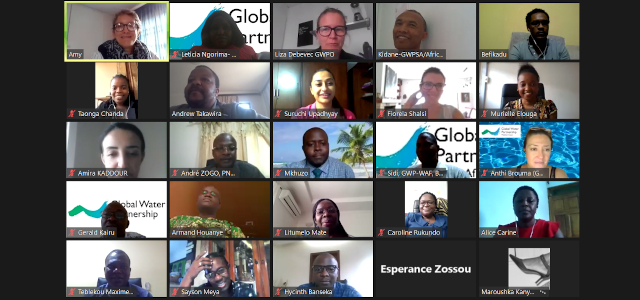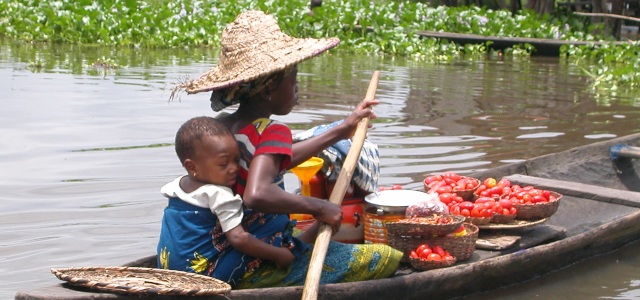“Gender equality is essential to the development of sustainable climate-resilient interventions”, says Mr. Alex Simalabwi, GWPSA Executive Secretary and GWP Global Head of Climate Resilience. “Across Africa, investment and institution-building through water and climate change adaptation projects are typically not gender-responsive or gender-transformative.”
GWP and partners are working together to change this narrative through the Water, Climate, Gender and Development Programme (AIP-WACDEP-G) in Africa. The programme will adopt a gender-transformative approach (GTA) towards accelerating water and climate investments as a means of addressing gender inequalities across the continent.

Group Photo -AIP-WACDEP-G Gender Analysis Workshop - 31 August 2020
GWP will work with the gender consulting firm, Includovate, to conduct a gender analysis which will inform a gender-transformative approach for strengthening water security and climate resilience in the five AIP-WACDEP-G pilot countries: Benin, Cameroon, Tunisia, Uganda, and Zambia.
An inception workshop on the AIP-WACDEP-G Gender Analysis was held virtually on 31 August 2020, with the aim of noting the key activities to be carried out and identify main stakeholders to be engaged during the gender analysis.
The workshop was attended by GWPO, regional coordinators and communication officers from five regions across Africa, programme leads, gender advisors for the pilot countries, and representatives from Includovate.
Includovate’s Dr. Amy Sullivan emphasised the need for inclusivity at all levels in the process of gender transformation.
"Numbers and evidence only are not enough for gender transformation, the process involves personal level changes of mindsets and behaviours”, said Dr. Sullivan. "One of the key success factors in transforming systems is understanding them from multiple points of view, particularly through inclusion and participation".
The meeting reiterated the need to identify all key stakeholders, formal and informal, who have a bearing on gender issues. The meeting also agreed on the involvement of informal structures (religious leaders, local community leaders, etc) as they are a key factor in shaping the cultural norms and practices that define gender roles in society.
The AIP-WACDEP-G is a sub-programme of GWPSA’s Africa Water Investment Program (AIP), which aims to leverage USD 30 billion on Investments and create 5 million jobs by 2030. The AIP was adopted by the Governance Council of the African Ministers Council on Water in February 2019 who endorsed AIP as a catalyst to the achievement of both the African Union Agenda 2063; and the Sustainable Development Goals.
GWP is committed to gender equality and inclusion. The network works towards ultimately expanding benefits for women, vulnerable and excluded groups, and the environment through a dedicated global programme. The efforts and vision towards gender equality are clearly laid out in the GWP Strategy towards 2020, the new GWP Strategy (2020-2025), the Gender Strategy, and the Gender Action Piece (2017).
AIP-WACDEP-G is financially supported by the Austrian Development Agency (ADA), Swedish International Development Agency (SIDA) and the Swiss Development Cooperation (SDC).
